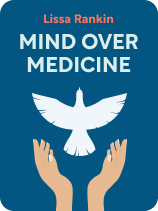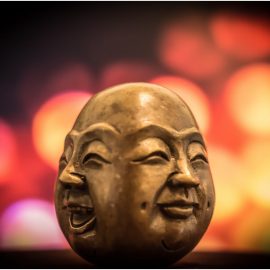

This article is an excerpt from the Shortform book guide to "Mind Over Medicine" by Lissa Rankin. Shortform has the world's best summaries and analyses of books you should be reading.
Like this article? Sign up for a free trial here.
What is the placebo effect in psychology? What role does the mind play in healing the body?
Placebo is the beneficial effect experienced by a patient who has received a fake treatment but believes they’ve received real treatment. The placebo effect is proof that your beliefs can influence your physical health, conferring healing or inflicting sickness.
Here is how you can harness the power of placebo to heal your body.
The Power of Placebo
What is the placebo effect in psychology? The placebo effect occurs when you believe you have received medical treatment and experience a healing affect as a result. For example, in one study cited by Rankin, half of the patients received knee surgery and the other half believed they received surgery but didn’t. The placebo group was sedated, had three incisions made on their knee, and afterward were shown a video of a procedure that they believed had been performed on them. One-third of these patients with the placebo operation experienced relief from their knee pain—the same amount of people who felt relief from the actual surgery.
The placebo effect isn’t just limited to your perception of pain—it can also alter your physiology. For example, placebos have helped people grow hair, lower their blood pressure, and even shrink cancerous tumors. In one case, Rankin explains that a patient riddled with tumors was treated with an experimental drug he believed would cure his cancer. Despite his dismal prognosis, this patient’s tumors vanished just ten days after receiving the experimental drug. Afterward, a scientific report was released saying that the drug administered to this patient was ineffective. When the patient heard this news, he lost belief in the drug and his tumors returned.
However, the patient’s doctor suspected that his positive belief in the drug was the key factor in his spontaneous improvement. So, the doctor issued this patient a placebo in place of the drug and told his patient it was a more effective version of the experimental drug he’d previously been administered. Again, the patient’s tumors vanished. Unfortunately, another report was later released proving the drug was completely ineffective. After hearing this news, the patient’s cancer returned and he died just a couple of days later.
| Your Immune Response May Be Sending an SOS to Your Community One of the leading theories on why humans developed the placebo effect is the Signaling Theory of Symptoms. This theory proposes that your immune response to illness isn’t just a defensive reaction, but a signal to your community that you’re in need of care. Thus, when you receive treatment from a trusted source for an ailment you’re dealing with (perhaps a placebo), the symptoms you were experiencing as a manifestation of your immune response (signals for help) vanish. This evolutionary theory aligns with the research Rankin references, which concludes that relaxation induces the benefits of the placebo response. However, the Signaling Theory of Symptoms is limited to symptomatic relief and not any cure of illness. So how does the placebo effect induce extreme healing such as in the case of the patient with cancerous tumors? The role of placebos in cases of cancer remission is still mysterious. Researchers that completed a review of 45 clinical cancer trials found that 1% of participants had a positive response from placebos alone and less than 1% experienced a total recovery from cancer from placebos alone. The researchers also found that certain cancers are more responsive to placebos. For example, 7% of patients with prostate cancer in a placebo group experienced a positive response to placebos while 20% of sarcoma patients saw improvement. |

———End of Preview———
Like what you just read? Read the rest of the world's best book summary and analysis of Lissa Rankin's "Mind Over Medicine" at Shortform.
Here's what you'll find in our full Mind Over Medicine summary:
- How a healthy mind can heal physical ailments
- How our beliefs, our relationships, and our jobs affect our health
- How to improve the most important parts of your life






